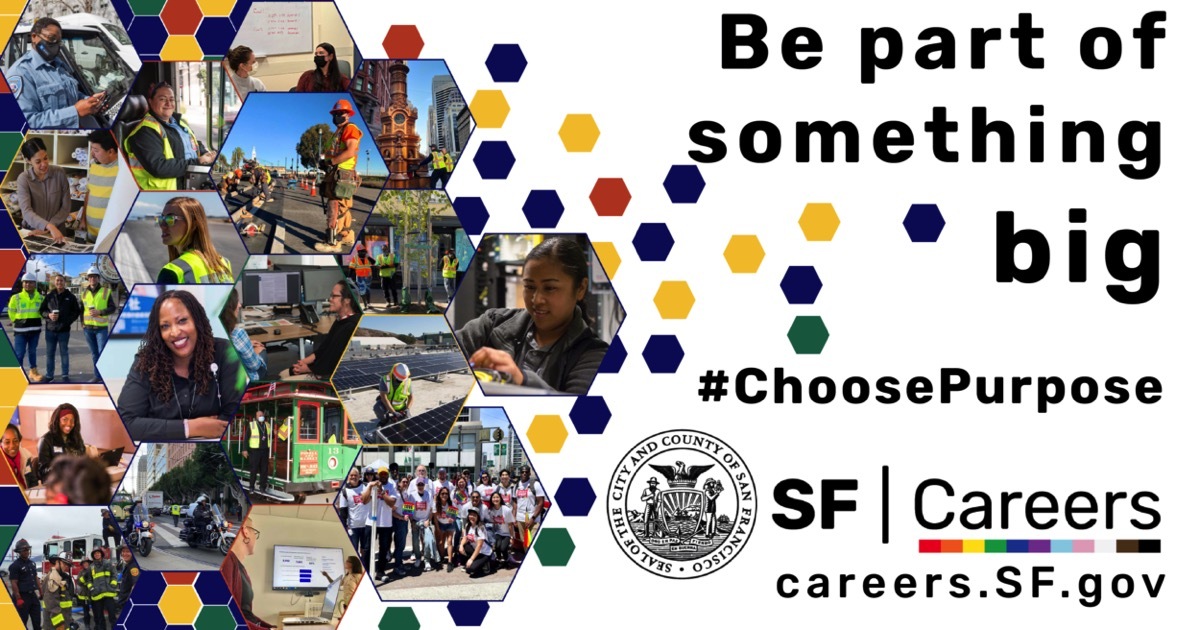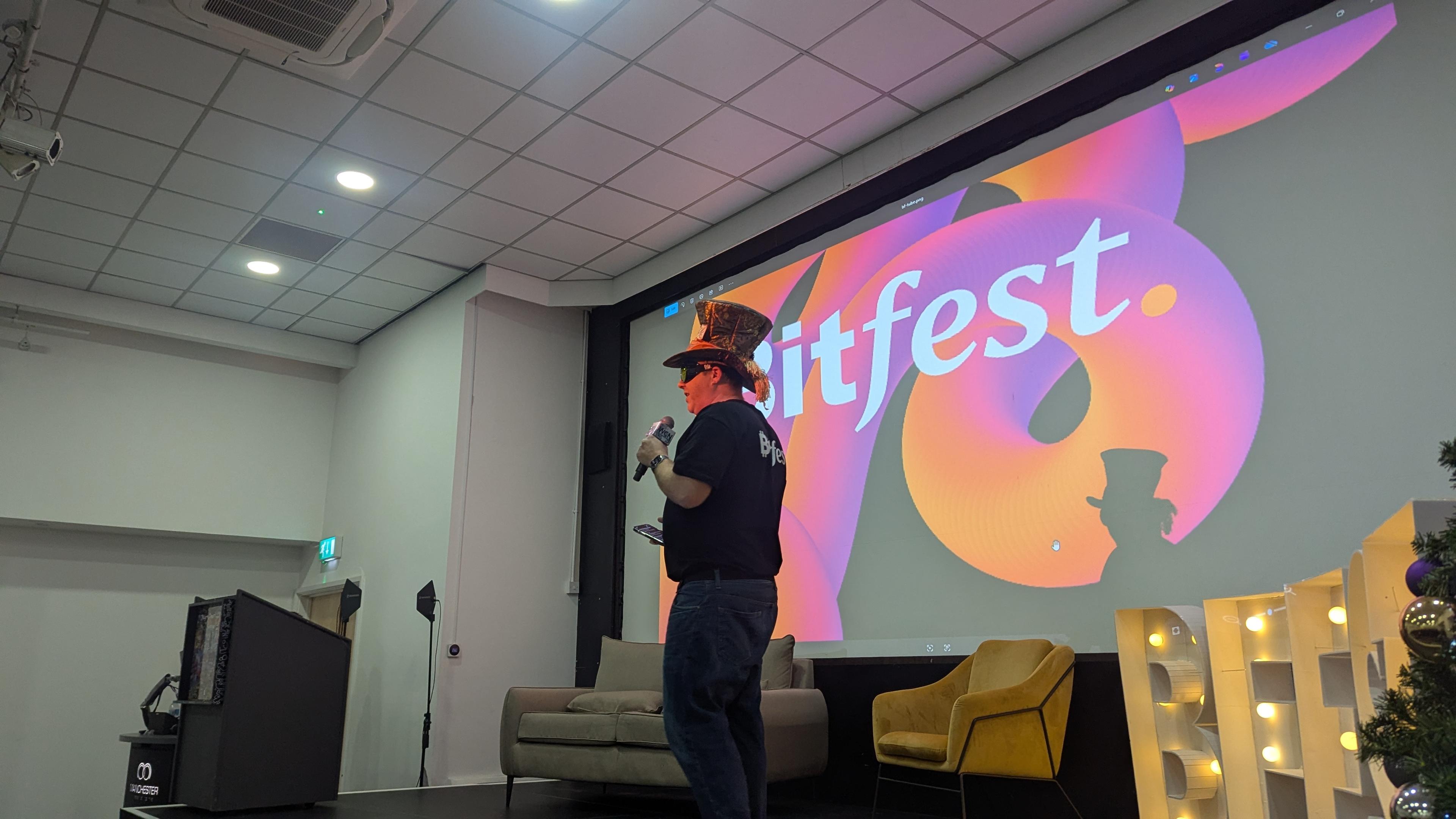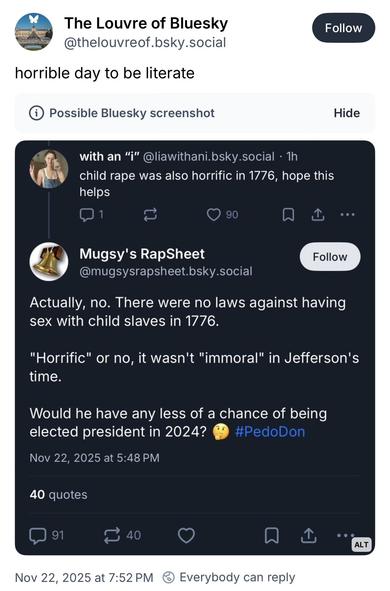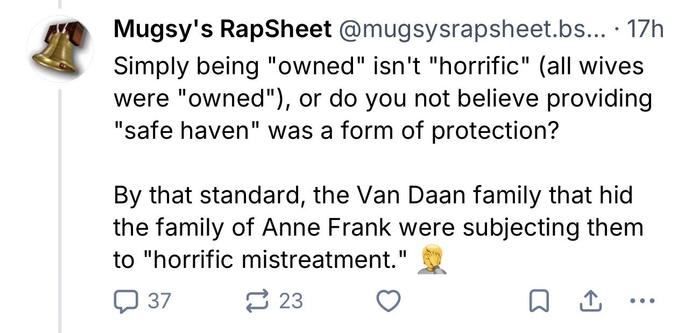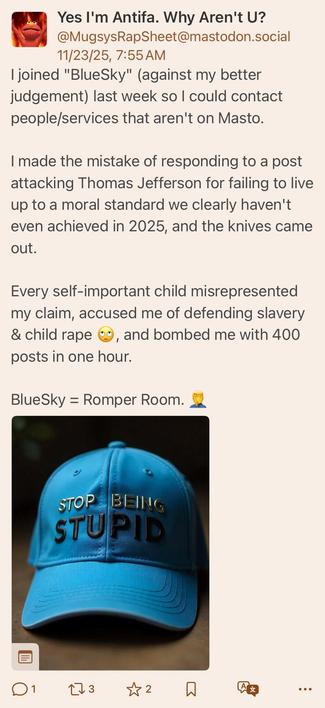2026-01-15 12:15:11
Great, my bank decided that it would release a new version of their app that isn't compatible with my phone...
Reason: They require "Google Play Integrity API" to pass before installing...
For those unfamiliar with it: the Integrity API is just a type of DRM to discourage people from using custom ROMs.
It is often cited to be "because of security" but when a phone that hasn't had any updates for 3 years passes it with flying colours, it's highl…
2026-01-14 18:30:49
I know everyone’s already dragging the living shit out of this already but 🤷🏻♀️:
All ICE/BP should have:
Clearly marked vehicles
Clearly marked names on uniforms (large TEXT for both)
ID/badges
Dismissal and/or prosecution for failing to comply.
QR codes are just unneeded “tech” complication
The current regime talks a lot of shit about ID being required to vote, but is fine with armed agents of the govt having less ID than a teen trying (and failing) to…
2026-02-09 20:19:20
Still not feeling great, but figured today would be a great day to finally test out the entirety of the custom FF6 cart I built so long ago. Broke out the Sony PVM-2530, got everything hooked up, and now it's time to beat all of the things down.
The SNES is modded with Voultar's SNESRGB mod, and the video/audio goes out via a SCART connector into the SCART switch (`gscart`), then into the CMPTR adapter, _then_ into the Sony PVM.
I do have two SCART switches, and if you…
2025-12-04 02:02:12
SF's Local Agency Formation Commission "LAFCo" is hiring a policy analyst. This role would be key in the development of a green public bank, which will be on the ballot next year, and potentially in starting a social housing program!
https://careers.sf.gov/role/?id=374399
2026-01-28 09:11:49
"When you focus on growth in GDP as your primary goal without any concern for whether what creates that growth is of real value rather than simply being capable of being counted, whilst being indifferent to the distribution of the gains, those already vulnerable are bound to suffer as a consequence... The policy failure this chart exposes is not an accident; it will be achieved by #Labour by d…
2025-11-22 10:39:50
Despite much opinion to the contrary, the government money we use is crappy.
I'm at bitfest in Manchester to find out if Bitcoin could be a better money.
It could hardly be worse.
The mood is still good, people are joking about recent devaluation rather than crying. Those who aren't all in are trying to buy more at the discount.
After an introduction by Mad Bitcoins, Joe Bryan explains the problem with government money.
He imagines an island on which two types of money are tried, with a dividing wall between them.
When economic problems hit, government can just print more money on the fiat side. Everyone now using money which is worth less. Distorting prices, inflating asset prices, making the rich (who hold assets) richer and the poor (who have to pay inflated prices) poorer. Driving wealth inequality.
On the hard money side, government must tax properly. Take in more from the rich rather than inflating to take it from the poor. Reducing wealth inequality.
On the government money side, the wealthy monitize houses, stocks, resources. Saving in money is impossible, its inflated away. So they save in assets and hording resources. Capital is misallocated. The youth can't afford houses. Poverty traps are caused. The only way out is printing more for benefits. Making it all worse. More economic crises, more printing. More government debt.
Eventually, the wall is broken. Government money people can save in the hard money instead. It reduces the value of government money further. More printing. More inflation.
Eventually, war. Funded by printed money.
The dollar is the best of a bad bunch all other government money is falling in value even faster.
I wonder, is bitcoin really this better money though? It's limited, hard, and can't be printed without energy investment.
I'm still unsure that fixing money fixes the world.
--
Note: "crypto" is mostly more like government money than bitcoin. It can be printed indefinitely by it's makers, does not cost it's makers to print. Crypto is usually just a scam people to get more bitcoin. Bitcoin is not crypto.
#bitfest #bitcoin
2025-12-30 04:53:27
I agree with the following but understand why folks would like to be private too!
Fernando Borretti:: "I Wish People Were More Public"
Probably not a popular thing to say today. The zeitgeisty thing to say is that we should all log off and live terrible cottagecore solarpunk lives raising chickens and being mindful. I wish people were more online and more public. I have rarely wished the opposite. Consider this post addressed to you, the reader." --> Read the whol…
2025-11-23 15:10:54
Yea I can’t imagine why anyone thought this dipshit was defending rape…I mean aside from the over half a dozen posts where he defended rape as “not immoral”, literally said “No. In fact, the word "rape"…didn't even exist until the 1800s.” and arguing that being “owned”* wasn’t “horrific”
Complete mystery why people went after him, must be some weird BlueSky thing. 😂
JFC
2026-02-04 20:25:00
of course... it's actually much worse than just policy dredged up from the days of Paul Martin and Stephen Harper… it's a gigantic step backward at the behest of fossil fuel interests in order to keep people burning fossil fuels.
EV mandates should be 'sold’ as an affordability measure! Because they are!
No, I don't mean grants, I mean everyday use. Real impacts on your pocket book. How much money would you save if you *never* went to a gas station. Just think about that for second.
Then we can do the math.
My 2019 Hyundai Kona Electric just passed 251152km (palindrome!) yesterday and gets around 6km/kWh on average.
I pay about $0.13/kWh at home to charge so that's $0.02/km. That is $5,023.04 in total energy expenses so far.
Our 2012 Toyota Prius C is at 270,000km and gets about 5.5L/100km or 0.055L/km. At (a discounted) $1.25/L that’s $0.04/km or $10,800 in total energy expenses so far.
Per kilometre the EV is half the cost to 'fuel' than one of the most fuel efficient gas cars out there.
In general, why would *anyone* choose something that costs double to run!?
And yet, the government doesn't sell this as ‘affordability’ it sells it as 'environmental responsibility'.
Let's be honest, they do that because they *know* the environmental message is *less* motivating than money.
Now I said at the beginning, "imagine" never going to the gas station. Obviously that doesn't mean you're fueling for free... but there is another overlooked aspect to this.
Fueling your car is a day to day thing. It's one of the biggest pulls on people's bank accounts precisely because it is such a frequent cost.
Now imagine if that 'bill' was just rolled into your home electricity bill. Which you could do other things to reduce cost overall?
EVs are not just an environmental game changer, they are a financial one for the average person.
That is why oil companies are throwing absolutely everything they have at government (and also fomenting fascism) to keep their good times going, at our expense.
#CanPoli #CdnPoli #EV #ClimateChange #ClimateAction #Driving #Affordability
2026-01-16 01:00:36
Ever notice how you're watching your own life from a slight distance?
Not depressed. Not burned out. Just... slightly absent.
When overwhelm lasts longer than we can process it, we adapt by feeling less. We function but don't fully inhabit our days.
The long dissociation kept us safe when feeling everything wasn't possible.
But survival was never the same thing as being alive.
What would it mean to gently come back?




